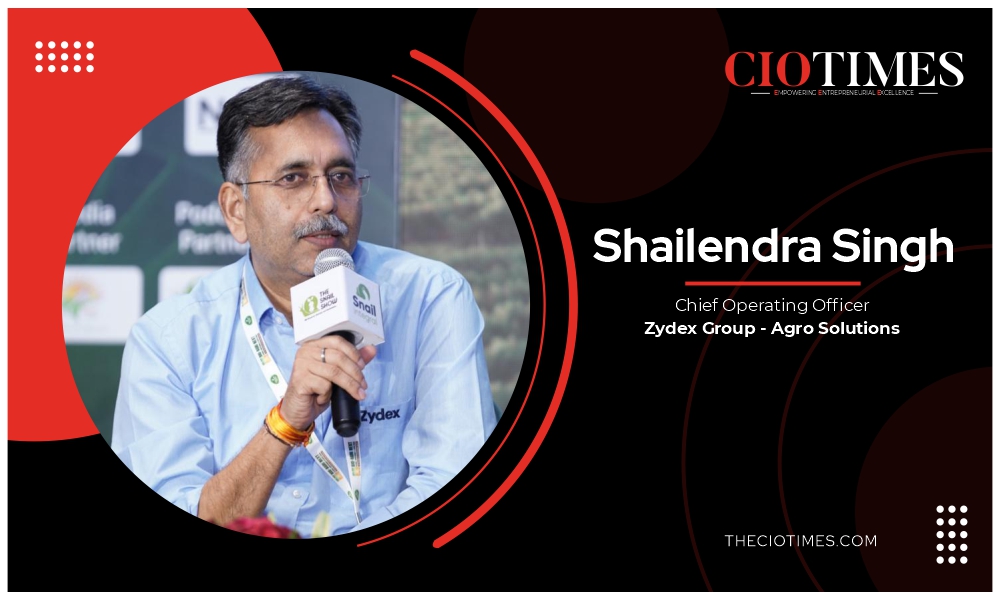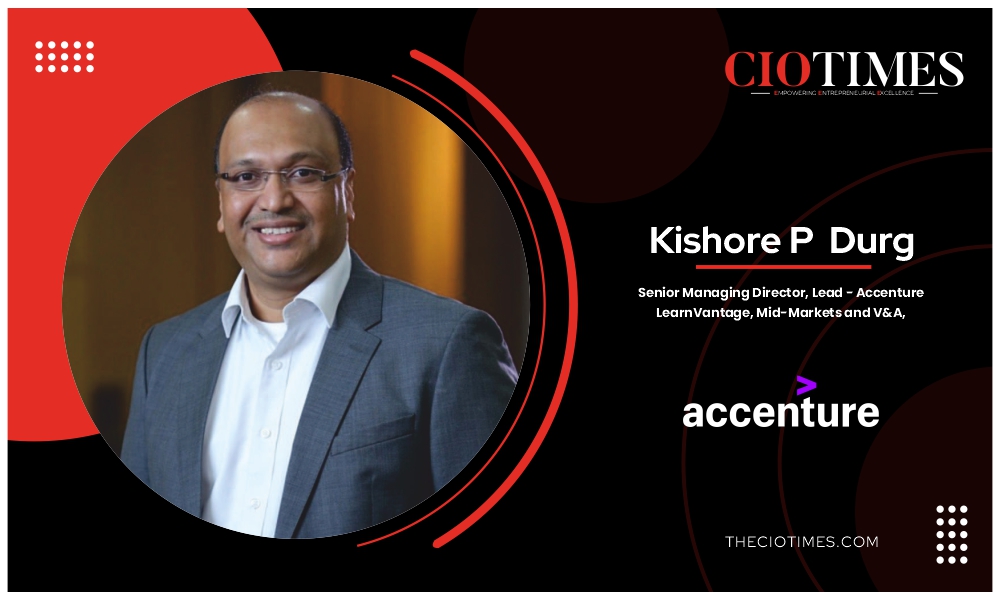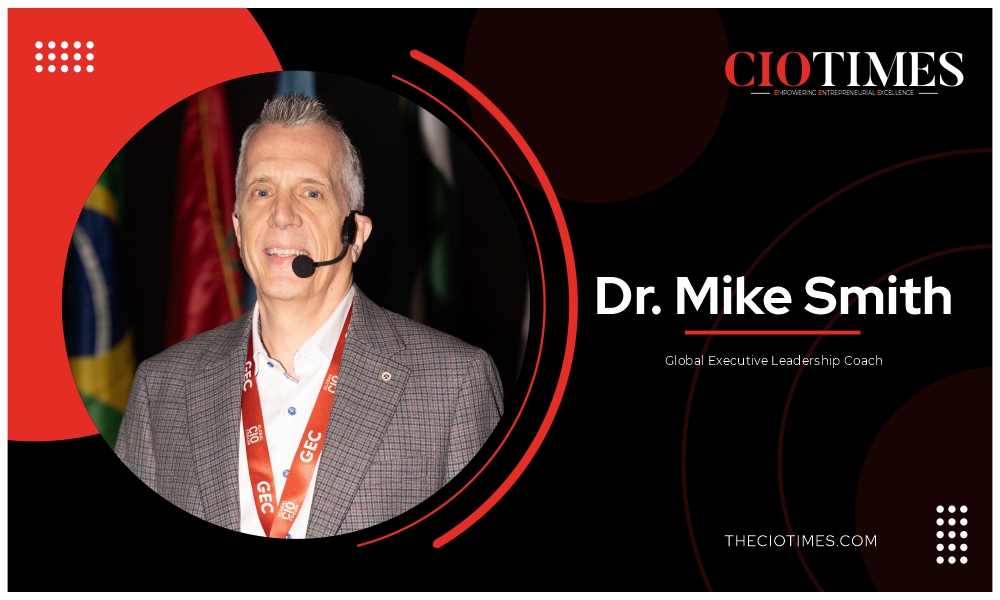Business organizations and entrepreneurs have become conscious of the environmental hazards these days. There’s an increased quest to adopt sustainable innovation. Among them is Dr. Shailendra Singh, Chief Operating Officer at Zydex Group. His relentless pursuit of innovation, nurturing sustainability, and blending efforts towards a greener future caters to his corporate values. His professional journey is one of consistent learning, transformation, and leadership across the entire agribusiness spectrum. He has worked in every facet of the industry. His career trajectory has exposed him to supervising manufacturing floors to tackling leadership roles in sales, product development, research, regulatory affairs, and new technology deployment. Each phase has helped him shape his perspective on business growth and leadership.
Team building has been Dr. Shailendra’s most foundational experience. He has witnessed fruitful results by leading diverse teams, mentoring talent, and cultivating a culture of resilience and continuous improvement. He recalls training senior leaders in Lean Six Sigma, developing nine Black Belts across multiple manufacturing facilities, and empowering large field teams and channel partners to align with organizational strategy. These experiences reinforced his commitment to strategic planning, strengthened his emotional intelligence, and deepened his belief in providing stability during periods of change.
Cross-functional collaboration has played a defining role in his career. Working with government agencies, industry associations, and global business units honed his ability to build consensus, influence effectively, and deliver results in complex regulatory landscapes. Leading major Six Sigma initiatives in sales and marketing generated substantial business savings, reinforcing that operational excellence, when pursued rigorously, can simultaneously drive profitability and long-term impact.
Dr. Shailendra’s experience with diversified enterprises such as the Jubilant Bhartia Group deepened his respect for research-driven growth, while his early work at Savannah Seeds instilled the discipline to balance technological innovation with farmer-centric validation.
Now serving as COO of Zydex, he is guided by three core principles: resilience, authenticity, and empathy, believing that true leadership is not only about achieving business goals but also about creating enduring value for people, organizations, and communities.
Strategic Moves for Empowerment
A renowned polymer scientist, Dr. Ajay Ranka, founded Zydex in 1997. The vision is to be a global specialty chemicals company built on the principle of innovating sustainably and conserving resources for a better world. The cross-border operations cover 40 countries with more than 1,100 dedicated professionals skilled in diverse sectors like agriculture, textiles, roads, waterproofing, and paints.
Zydex has remained deeply committed to green chemistry, creating eco-friendly and non-hazardous technologies that are valued not just for their business impact but for the positive difference they make to society and the planet. The company’s work reflects a belief that innovation should serve people, communities, and the environment at the same time.
The Agricultural Division lives by the philosophy of “sustainable farming for nutritious, safe, and affordable food for all.” Backed by strong R&D, robust infrastructure, and global partnerships, Zydex turns science into practical solutions that help farmers while protecting natural resources.
The shift toward bio-farming was inspired by real challenges farmers face every day: declining soil health, falling water tables, and growing dependence on chemicals. Agriculture today is caught in a paradox: farmers must deliver more food of better quality even as ecological pressures increase. Zydex chose to lead change by introducing technologies that restore soil health, reduce chemical inputs, and improve both yields and farmer livelihoods.
At the heart of this effort is Prakalp Sanjivani (Project Farm Revival). Through organic-certified bio-fertilizers, soil conditioners, and advanced inoculation technologies such as mycorrhiza, NPK consortia, and zinc-solubilizing bacteria, farmers can move away from chemical fertilizers right from the first crop cycle. The results bring healthier soils and stronger farmer economics together.
For Zydex, this journey into bio-farming is more than a business strategy; it is a reflection of values: integrity, prudence, empathy, and sustainability. It represents a promise to farmers, communities, and future generations that agriculture can be productive, profitable, and sustainable at the same time.
Essential Parameters
Dr. Shailendra recognizes that soil health forms the very foundation of sustainable agriculture. It influences not only productivity and crop quality but also the resilience of farming systems against climate stress. Healthy soils can be assessed through several critical measures:
- Organic Carbon Content: The cornerstone of soil fertility, enhancing microbial activity, nutrient retention, and ecological balance.
- Microbial Diversity and Activity: A healthy soil is alive; microbial biomass, enzyme activity, and species diversity drive nutrient cycling and natural disease resistance.
- Porosity and Compaction Levels: Soil structure governs water infiltration, aeration, and root development, while compaction restricts growth and lowers yields.
- Nutrient Balance: Ongoing assessment of macro (N, P, K) and micro (zinc, boron, etc.) nutrients ensures balanced growth while preventing environmental harm.
- Water Retention and Infiltration: Critical in drought-prone regions, efficient water use safeguards both crops and ecosystems.
- pH and Electrical Conductivity: Key to nutrient availability and early detection of issues like salinity.
- Texture and Aggregate Stability: Determining the soil’s resistance to erosion and its ability to support roots.
At Zydex, these parameters guide the integration of soil health amendments and biological innovations designed to restore vitality, enhance resilience, and secure sustainable productivity for future generations.
Farmer-centric Magnitude
Innovation is measured by the value it creates on the farm. The company’s product development philosophy rests on three core pillars.
Rigorous science forms the foundation for every product that undergoes extensive R&D, multi-location field trials, and data-driven validation to ensure reliability. Equally important is farmer-centric design, where simple instructions, easy application methods, and continuous user feedback make technologies practical and accessible. Finally, through capacity building initiatives, training programs, field demonstrations, and digital learning modules, Zydex equips farmers and partners to confidently adopt new solutions.
This balanced approach ensures that every product remains both scientifically robust and farmer-friendly, enabling widespread adoption and meaningful impact in the field.
Bio-Farming Expansion
Zydex’s approach to scaling bio-farming across geographies and crop types is built on adaptability, collaboration, and innovation, explains Dr. Shailendra. The company has established demonstration farms, where local success stories inspire confidence and encourage wider adoption among farming communities. Academic partnerships, such as those with Parul University, help prepare the next generation of agri-leaders by embedding bio-farming practices into agricultural education.
A flexible product portfolio, particularly the Zytonic range, ensures applicability across cereals, vegetables, horticulture, and specialty crops, making the solutions relevant to diverse farming needs. Knowledge transfer is a cornerstone of the strategy through farmer training programs, workshops, field demonstrations, and digital platforms. Zydex equips farmers with practical skills and insights.
Equally important is government engagement, where collaborations with local agencies align Zydex’s solutions with regional priorities and policies. Together, these strategies have enabled hundreds of farms to transition toward chemical-free, sustainable farming, delivering benefits that extend to farmers, consumers, and the environment alike.
Leveraging Indigenous Technology
Zytonic technology is among Zydex’s most transformative innovations, designed to address two of agriculture’s most persistent challenges: soil compaction and nutrient depletion.
For soil compaction, the Zytonic platform combines advanced microbial consortia with innovative formulations to restore porosity and aggregate stability. This improves aeration, water infiltration, and biological activity in the soil. Farmers experience stronger germination, deeper root systems, better nutrient uptake, and enhanced resilience to climate stress. To further enrich organic carbon, Zytonic also enables rapid and complete bio-digestion of animal waste and other organic matter into high-quality farmyard manure through simple composting methods, improving soil fertility sustainably.
To combat nutrient depletion, Zytonic inoculates soils with mycorrhizal fungi, nitrogen-fixing bacteria, and phosphorus- and potassium-solubilizing microbes. These organisms naturally unlock nutrients, build organic matter, and restore long-term soil fertility. The improved structure with greater aeration, higher water retention, and thriving microbial populations ensures consistent performance across cropping cycles.
The field results speak for themselves: germination rates increase from 70–75% to 85–95%; input costs decline due to reduced reliance on fertilizers and irrigation; and water-holding capacity improves from the very first cycle.
Debunking Delusions
Dr. Shailendra highlights the fact that Zydex recognizes that transitioning from chemical to biological farming is often perceived as risky or impractical, largely due to common misconceptions. One widespread belief is that yields and profits will decline; however, the organization’s data consistently demonstrates equal or even superior yields, with better quality and improved profitability. Another misconception is that biological products are slow to act, yet the Zytonic range delivers visible improvements within the very first crop cycle.
Farmers also fear that transitioning is complex and risky, but with phased adoption models and continuous support, the shift can be both smooth and low-risk. Concerns around economic viability are equally misplaced, as reduced input costs combined with higher productivity ensure sustainable financial gains. Finally, the notion that biological solutions offer weaker pest and disease control is countered by integrated, science-backed approaches that deliver strong protection.
Furthermore, Dr. Shailendra emphasizes that, for Zydex, the reality is clear: when implemented strategically, biological farming is not only viable and profitable but also essential for building an environmentally sustainable future.
Agro Resilience
Zydex recognizes that agribusiness stands at the frontline of the climate crisis, with a responsibility to evolve from being input-driven to becoming a true steward of resilience. This shift requires a multi-dimensional approach, developing climate-resilient seeds and strengthening soil health, building integrated low-carbon value chains, and promoting farmer education in risk management.
Equally important is the use of data and technology to help farmers adapt to climate variability with confidence and precision. In this new paradigm, agribusiness is called to deliver more than productivity; it must safeguard food security, improve nutrition, and strengthen the livelihood resilience of billions of people around the world.
Pillars of Responsible Farming
Zydex identifies three regulatory shifts as critical to accelerating sustainable agriculture in India:
1.Clear Standards: Establishing harmonized definitions, transparent certifications, and fast-track approval processes for biological products.
2.Financial Incentives: Introducing subsidies, green financing mechanisms, and climate-smart grants to support farmer adoption.
3.Integrated Monitoring: Deploying digital systems for soil and crop health tracking to enhance transparency, accountability, and compliance.
The company underscores that these reforms can only succeed through close collaboration between government, regulators, and industry stakeholders.
The Future Luminary
Dr. Shailendra envisions Zydex as the world’s leading catalyst for sustainable agriculture. It includes:
Empowering farmers everywhere to transition to profitable, chemical-free farming.
Acting as a bridge between research, industry, and communities.
Designing solutions for diverse agro-ecologies worldwide.
Integrating profitability with sustainability and social responsibility.
Zydex will be a prolonged source of inspiration for farmers, partners, and teams. Together, the organization will jointly shape an abundant and regenerative future.
A Go-to Quote
When asked about a quote that reflects her philosophy of work and leadership, she highlights one that resonates deeply: “Transformation begins at the roots—when you empower people, restore nature, and innovate with purpose, prosperity follows for all.”
For her, these words embody both her personal ethos and Zydex’s broader organizational purpose, uniting people-centric values with a vision of sustainable innovation and shared prosperity.
On an Ending Note
While concluding, Dr. Shailendra says the organization envisions itself as a part of a larger mission, which is to restore soils, empower farmers, and secure sustainable food systems for future generations. With an unwavering commitment to prosperity through sustainability, the organization will continue to develop cutting-edge bio-farming technologies while also investing in community education.
Dr. Shailendra’s professional journey highly resonates with the organization’s principles. It is about the relentless pursuit of innovation, operational excellence, and people empowerment. Working unitedly with farmers, partners, and communities, the organization is commencing a new chapter in agriculture. This chapter promises abundance, resilience, and sustainability for all.
Explore the full edition here: [link]




